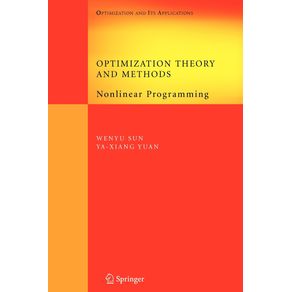| Origem | Literatura Estrangeira |
|---|---|
| Quantidade de Páginas | 344 |
| Acabamento | Capa Dura |
| Autores | Rolly Angeles |
| Idioma | Inglês |
| Edição | 0 |
| Selo | Rolando Santiago Angeles |
 Matemática das coisas ou coisas da matemática
Matemática das coisas ou coisas da matemática
Editora Viseu
R$ 33,90 à vista Übungen zu gewöhnlichen Differentialgleichungen
Übungen zu gewöhnlichen Differentialgleichungen
Draft2Digital
R$ 75,62 à vista Larithmetiqve de Simon Stevin de Brvges
Larithmetiqve de Simon Stevin de Brvges
Legare Street Press
R$ 319,15 ou até 3x sem juros X-Planes from the X-1 to the X-60
X-Planes from the X-1 to the X-60
Springer Nature B.V.
R$ 205,80 ou até 3x sem juros One-design Class Sailboat Handbook
One-design Class Sailboat Handbook
Legare Street Press
R$ 167,55 ou até 3x sem juros Probability, Statistics and Simulation
Probability, Statistics and Simulation
Springer Nature B.V.
R$ 352,41 ou até 3x sem juros Least Squares Data Fitting with Applications
Least Squares Data Fitting with Applications
Hopkins Fulfillment Service
R$ 742,28 ou até 3x sem juros Mierda a la carta
Mierda a la carta
ibukku, LLC
R$ 283,74 ou até 3x sem juros Building the French empire, 1600-1800
Building the French empire, 1600-1800
Manchester University Press (P648)
R$ 247,68 ou até 3x sem juros Minerals For the Genetic Code
Minerals For the Genetic Code
Acres U.S.A., Inc.
R$ 146,60 ou até 2x sem juros X-Ray CT
X-Ray CT
Springer Nature B.V.
R$ 224,44 ou até 3x sem juros Principles and Applications of Dimensional Analysis and Similarity
Principles and Applications of Dimensional Analysis and Similarity
Springer Nature B.V.
R$ 342,45 ou até 3x sem juros Artificial Intelligence for Financial Markets
Artificial Intelligence for Financial Markets
Springer Nature B.V.
R$ 1.226,08 ou até 3x sem juros Introduction to Linear and Matrix Algebra
Introduction to Linear and Matrix Algebra
Springer Nature B.V.
R$ 569,09 ou até 3x sem juros Advanced Linear and Matrix Algebra
Advanced Linear and Matrix Algebra
Springer Nature B.V.
R$ 563,27 ou até 3x sem juros Matemática das coisas ou coisas da matemática
Matemática das coisas ou coisas da matemática
Editora Viseu
R$ 33,90 à vista A elegância da teoria dos grafos
A elegância da teoria dos grafos
KS OmniScriptum Publishing
R$ 762,67 ou até 3x sem juros Optimization Theory and Methods
Optimization Theory and Methods
Springer Nature B.V.
R$ 355,13 ou até 3x sem juros Introductio In Analysin Infinitorum, Volume 1...
Introductio In Analysin Infinitorum, Volume 1...
Legare Street Press
R$ 242,59 ou até 3x sem juros Old Clocks And Watches And Their Makers
Old Clocks And Watches And Their Makers
Legare Street Press
R$ 219,91 ou até 3x sem juros Philosophiæ Naturalis Principia Mathematica; Volume 2
Philosophiæ Naturalis Principia Mathematica; Volume 2
Legare Street Press
R$ 181,57 ou até 3x sem juros Probability, Statistics and Simulation
Probability, Statistics and Simulation
Springer Nature B.V.
R$ 352,41 ou até 3x sem juros Minerals For the Genetic Code
Minerals For the Genetic Code
Acres U.S.A., Inc.
R$ 146,60 ou até 2x sem juros X-Ray CT
X-Ray CT
Springer Nature B.V.
R$ 224,44 ou até 3x sem juros Hyperbolic Conservation Laws in Continuum Physics
Hyperbolic Conservation Laws in Continuum Physics
Springer Nature B.V.
R$ 342,61 ou até 3x sem juros An Analytical Approach to Linear Audio Frequency Power Amplifier Design
An Analytical Approach to Linear Audio Frequency Power Amplifier Design
New Generation Publishing Ltd
R$ 379,76 ou até 3x sem juros The Secret Lives of Numbers
The Secret Lives of Numbers
Rowman & Littlefield Publishing Group Inc
R$ 163,08 ou até 3x sem juros Jigs and Fixtures
Jigs and Fixtures
Repro India Limited
R$ 136,71 ou até 2x sem juros Mathematician with the Soul of a Poet
Mathematician with the Soul of a Poet
Bohannon Hall Press
R$ 182,43 ou até 3x sem juros Introduction to Linear and Matrix Algebra
Introduction to Linear and Matrix Algebra
Springer Nature B.V.
R$ 569,09 ou até 3x sem juros A elegância da teoria dos grafos
A elegância da teoria dos grafos
KS OmniScriptum Publishing
R$ 762,67 ou até 3x sem juros Protoalgebraic Logics
Protoalgebraic Logics
Springer Nature B.V.
R$ 342,84 ou até 3x sem juros Time Series Analysis for the State-Space Model with R/Stan
Time Series Analysis for the State-Space Model with R/Stan
Springer Nature B.V.
R$ 337,49 ou até 3x sem juros Sequential Monte Carlo Methods in Practice
Sequential Monte Carlo Methods in Practice
Springer Nature B.V.
R$ 350,36 ou até 3x sem juros X-Planes from the X-1 to the X-60
X-Planes from the X-1 to the X-60
Springer Nature B.V.
R$ 205,80 ou até 3x sem juros Lévolution De La Mécanique
Lévolution De La Mécanique
Legare Street Press
R$ 189,98 ou até 3x sem juros Hungarian Mathematical Olympiad (1964-1997)
Hungarian Mathematical Olympiad (1964-1997)
World Scientific Publishing Co Pte Ltd
R$ 285,60 ou até 3x sem juros How We Build a Wind Farm
How We Build a Wind Farm
Will Douglas
R$ 148,19 ou até 2x sem juros Differential Geometry of Curves and Surfaces
Differential Geometry of Curves and Surfaces
Springer Nature B.V.
R$ 218,91 ou até 3x sem juros Building the French empire, 1600-1800
Building the French empire, 1600-1800
Manchester University Press (P648)
R$ 247,68 ou até 3x sem juros An Analytical Approach to Linear Audio Frequency Power Amplifier Design
An Analytical Approach to Linear Audio Frequency Power Amplifier Design
New Generation Publishing Ltd
R$ 379,76 ou até 3x sem juros The Secret Lives of Numbers
The Secret Lives of Numbers
Rowman & Littlefield Publishing Group Inc
R$ 163,08 ou até 3x sem juros Bayes Rule
Bayes Rule
Sebtel Press - NH
R$ 137,23 ou até 2x sem juros Jigs and Fixtures
Jigs and Fixtures
Repro India Limited
R$ 136,71 ou até 2x sem juros Introduction to Linear and Matrix Algebra
Introduction to Linear and Matrix Algebra
Springer Nature B.V.
R$ 569,09 ou até 3x sem juros